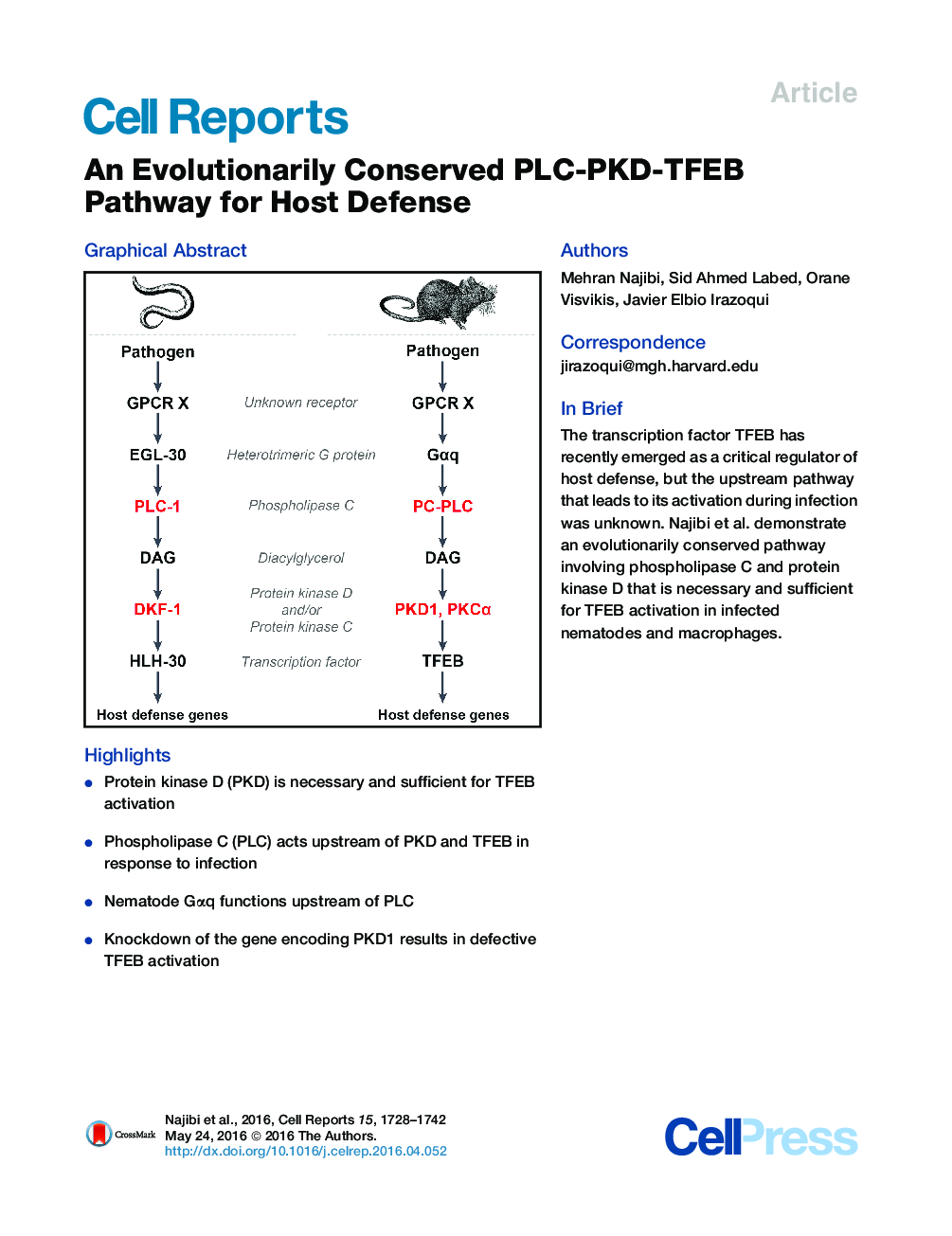| کد مقاله | کد نشریه | سال انتشار | مقاله انگلیسی | نسخه تمام متن |
|---|---|---|---|---|
| 2039604 | 1073070 | 2016 | 15 صفحه PDF | دانلود رایگان |

• Protein kinase D (PKD) is necessary and sufficient for TFEB activation
• Phospholipase C (PLC) acts upstream of PKD and TFEB in response to infection
• Nematode Gαq functions upstream of PLC
• Knockdown of the gene encoding PKD1 results in defective TFEB activation
SummaryThe mechanisms that tightly control the transcription of host defense genes have not been fully elucidated. We previously identified TFEB as a transcription factor important for host defense, but the mechanisms that regulate TFEB during infection remained unknown. Here, we used C. elegans to discover a pathway that activates TFEB during infection. Gene dkf-1, which encodes a homolog of protein kinase D (PKD), was required for TFEB activation in nematodes infected with Staphylococcus aureus. Conversely, pharmacological activation of PKD was sufficient to activate TFEB. Furthermore, phospholipase C (PLC) gene plc-1 was also required for TFEB activation, downstream of Gαq homolog egl-30 and upstream of dkf-1. Using reverse and chemical genetics, we discovered a similar PLC-PKD-TFEB axis in Salmonella-infected mouse macrophages. In addition, PKCα was required in macrophages. These observations reveal a previously unknown host defense signaling pathway, which has been conserved across one billion years of evolution.
Graphical AbstractFigure optionsDownload as PowerPoint slide
Journal: - Volume 15, Issue 8, 24 May 2016, Pages 1728–1742